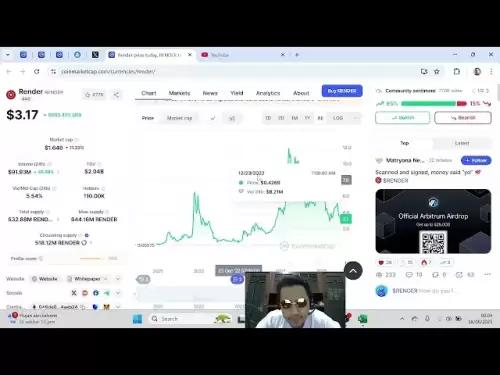-
 Bitcoin
Bitcoin $106,754.6083
1.33% -
 Ethereum
Ethereum $2,625.8249
3.80% -
 Tether USDt
Tether USDt $1.0001
-0.03% -
 XRP
XRP $2.1891
1.67% -
 BNB
BNB $654.5220
0.66% -
 Solana
Solana $156.9428
7.28% -
 USDC
USDC $0.9998
0.00% -
 Dogecoin
Dogecoin $0.1780
1.14% -
 TRON
TRON $0.2706
-0.16% -
 Cardano
Cardano $0.6470
2.77% -
 Hyperliquid
Hyperliquid $44.6467
10.24% -
 Sui
Sui $3.1128
3.86% -
 Bitcoin Cash
Bitcoin Cash $455.7646
3.00% -
 Chainlink
Chainlink $13.6858
4.08% -
 UNUS SED LEO
UNUS SED LEO $9.2682
0.21% -
 Avalanche
Avalanche $19.7433
3.79% -
 Stellar
Stellar $0.2616
1.64% -
 Toncoin
Toncoin $3.0222
2.19% -
 Shiba Inu
Shiba Inu $0.0...01220
1.49% -
 Hedera
Hedera $0.1580
2.75% -
 Litecoin
Litecoin $87.4964
2.29% -
 Polkadot
Polkadot $3.8958
3.05% -
 Ethena USDe
Ethena USDe $1.0000
-0.04% -
 Monero
Monero $317.2263
0.26% -
 Bitget Token
Bitget Token $4.5985
1.68% -
 Dai
Dai $0.9999
0.00% -
 Pepe
Pepe $0.0...01140
2.44% -
 Uniswap
Uniswap $7.6065
5.29% -
 Pi
Pi $0.6042
-2.00% -
 Aave
Aave $289.6343
6.02%
How to export transaction reports in Exodus?
Exodus offers CSV and JSON transaction history exports for various needs; the process is straightforward, but requires navigating the wallet interface, with troubleshooting steps available if needed.
Mar 12, 2025 at 05:46 am
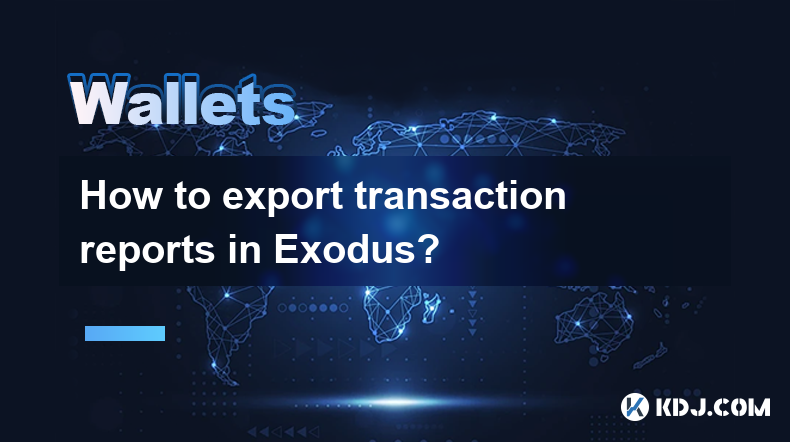
Key Points:
- Exodus offers multiple methods for exporting transaction history, catering to various needs and technical proficiencies.
- Export options include CSV files for easy spreadsheet integration and JSON files for more structured data analysis.
- The process is generally straightforward, but understanding your specific needs will determine the best approach.
- Accessing your transaction history requires navigating the Exodus wallet interface.
- Troubleshooting steps are available if you encounter issues during the export process.
How to Export Transaction Reports in Exodus
Exodus, a popular multi-cryptocurrency wallet, provides users with tools to manage and review their transaction history. Exporting this history is crucial for accounting, tax purposes, or simply reviewing your investment performance. The process is relatively simple, but varies slightly depending on the desired format.
Method 1: Exporting to CSV (Comma Separated Values)
This method is ideal for users who need a simple, easily importable format for spreadsheets like Microsoft Excel or Google Sheets. The CSV format is widely compatible and readily understandable.
- Open your Exodus wallet.
- Navigate to the specific wallet containing the transactions you wish to export.
- Locate the "Transactions" tab or similar option; the exact wording might differ slightly depending on the wallet version.
- Look for an export option, usually represented by an icon (like a download arrow) or a menu item labeled "Export."
- Select "CSV" as the export format.
- Choose a save location on your computer.
- The file will download; ensure you save it in a secure and accessible location.
Method 2: Exporting to JSON (JavaScript Object Notation)
JSON offers a more structured and detailed export format, useful for programmers or those who intend to perform complex data analysis. This method provides a more machine-readable format.
- Open your Exodus wallet.
- Navigate to the relevant wallet.
- Access the "Transactions" tab.
- Locate and select the export function.
- Choose "JSON" as the export format.
- Select a save location.
- The JSON file will download. Remember to save it securely.
Troubleshooting Common Export Issues
If you encounter problems exporting your transaction history, several troubleshooting steps can help resolve the issue.
- Check your internet connection: A stable internet connection is crucial for successful downloads.
- Restart your Exodus wallet: A simple restart can often resolve temporary glitches.
- Update your Exodus wallet: Outdated software can sometimes cause compatibility issues. Check for updates and install the latest version.
- Contact Exodus support: If the problem persists, contact Exodus support for assistance. They can provide specific troubleshooting advice based on your situation. Their support channels usually include email and a help center.
Understanding the Exported Data
Regardless of the chosen format (CSV or JSON), the exported data will typically include key information about each transaction. This information commonly includes:
- Date and time: When the transaction occurred.
- Transaction ID: A unique identifier for each transaction.
- Sender and recipient addresses: The addresses involved in the transaction.
- Amount: The amount of cryptocurrency sent or received.
- Transaction fee: The fee charged for processing the transaction.
- Status: Whether the transaction was successful or failed.
Exporting Transactions from Multiple Wallets
If you use Exodus to manage multiple cryptocurrency wallets, you'll need to repeat the export process for each individual wallet. Exodus doesn't offer a single, consolidated export for all wallets simultaneously.
Frequently Asked Questions (FAQs)
Q: Can I export transactions from a specific date range?
A: Currently, Exodus doesn't directly support exporting transactions within a specified date range. You'll need to manually filter and select the relevant transactions after exporting the entire transaction history.
Q: What if my exported file is corrupted?
A: If your exported file is corrupted, try re-exporting it. If the problem persists, contact Exodus support for assistance. They may be able to provide a solution or help recover your data.
Q: Is the exported data secure?
A: The security of your exported data depends on how you handle the file after downloading it. Store the file securely and avoid sharing it with unauthorized individuals.
Q: Are there any limitations on the number of transactions I can export?
A: There are no inherent limitations on the number of transactions you can export, but extremely large transaction histories might take longer to process and download.
Q: Can I import the exported data into tax software?
A: Yes, the CSV format is generally compatible with most tax software. However, you may need to adjust the data format to match your specific tax software's requirements.
Q: My transaction isn't showing up in my export. What should I do?
A: Ensure that the wallet containing the transaction is properly synced with the blockchain. If the transaction is very recent, it may take some time to appear in your wallet's transaction history. If the issue persists, contact Exodus support.
Disclaimer:info@kdj.com
The information provided is not trading advice. kdj.com does not assume any responsibility for any investments made based on the information provided in this article. Cryptocurrencies are highly volatile and it is highly recommended that you invest with caution after thorough research!
If you believe that the content used on this website infringes your copyright, please contact us immediately (info@kdj.com) and we will delete it promptly.
- 2025-W Uncirculated American Gold Eagle and Dr. Vera Rubin Quarter Mark New Products
- 2025-06-13 06:25:13
- Ruvi AI (RVU) Leverages Blockchain and Artificial Intelligence to Disrupt Marketing, Entertainment, and Finance
- 2025-06-13 07:05:12
- H100 Group AB Raises 101 Million SEK (Approximately $10.6 Million) to Bolster Bitcoin Reserves
- 2025-06-13 06:25:13
- Galaxy Digital CEO Mike Novogratz Says Bitcoin Will Replace Gold and Go to $1,000,000
- 2025-06-13 06:45:13
- Trust Wallet Token (TWT) Price Drops 5.7% as RWA Integration Plans Ignite Excitement
- 2025-06-13 06:45:13
- Ethereum (ETH) Is in the Second Phase of a Three-Stage Market Cycle
- 2025-06-13 07:25:13
Related knowledge
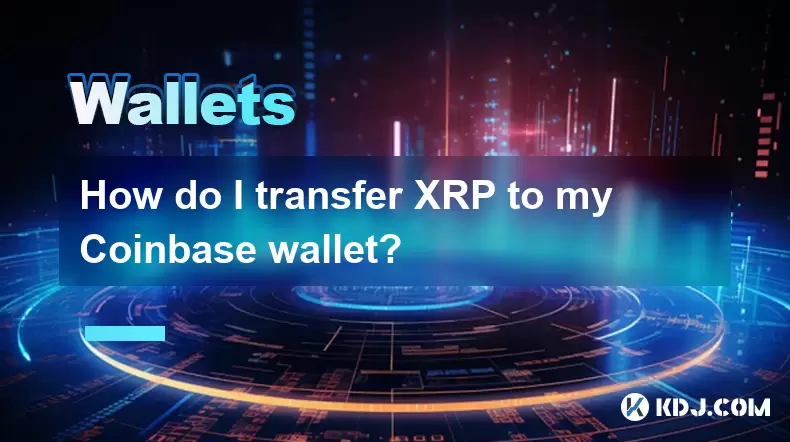
How do I transfer XRP to my Coinbase wallet?
Jun 16,2025 at 04:57pm
Understanding the Basics of XRP and Coinbase CompatibilityBefore initiating any transfer, it’s essential to confirm whether Coinbase supports XRP. As of recent updates, Coinbase has resumed offering XRP trading services on its platform after a period of uncertainty due to legal issues involving Ripple Labs. However, availability may vary depending on yo...

How do I deposit BNB into my Trust Wallet?
Jun 15,2025 at 03:56pm
Understanding BNB and Trust Wallet CompatibilityBefore initiating a deposit, it’s crucial to understand what BNB is and how it interacts with Trust Wallet. BNB (Binance Coin) is a utility token created by the Binance exchange. It can be used for paying transaction fees, participating in token sales, and more. Trust Wallet, on the other hand, is a mobile...
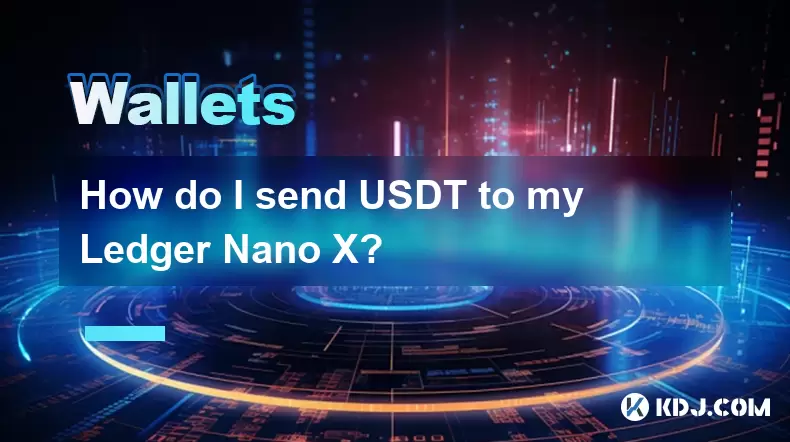
How do I send USDT to my Ledger Nano X?
Jun 15,2025 at 06:28am
What is USDT and Why Use Ledger Nano X?USDT, also known as Tether, is one of the most widely used stablecoins in the cryptocurrency ecosystem. It operates on various blockchain networks such as Ethereum (ERC-20), Tron (TRC-20), and others, offering users a digital asset pegged 1:1 to the US dollar. When it comes to storing USDT securely, hardware wallet...
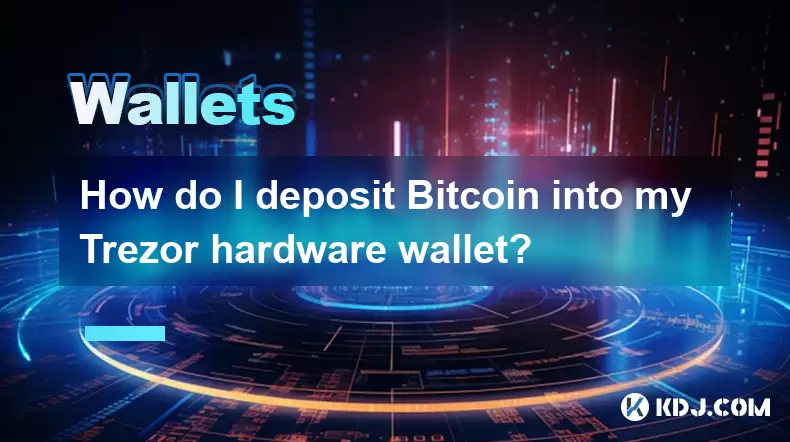
How do I deposit Bitcoin into my Trezor hardware wallet?
Jun 14,2025 at 12:29pm
What is a Trezor Hardware Wallet?A Trezor hardware wallet is a secure device designed to store cryptocurrencies offline, protecting them from online threats. Unlike software wallets, which are vulnerable to hacking and malware, Trezor stores private keys on the physical device itself. This ensures that transactions can only be approved by physically int...
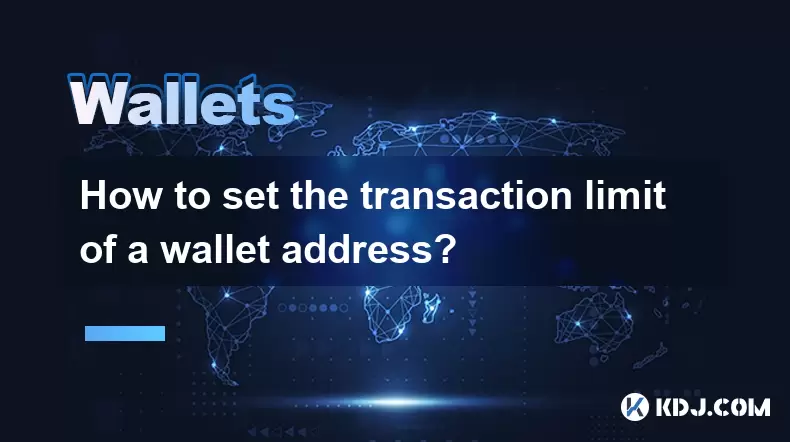
How to set the transaction limit of a wallet address?
Jun 16,2025 at 04:08am
Understanding the Concept of Transaction Limits in Cryptocurrency WalletsIn the cryptocurrency ecosystem, transaction limits refer to predefined restrictions placed on the amount of digital assets that can be sent or received by a wallet address within a specified timeframe. These limits are typically enforced by platforms such as exchanges, custodial w...
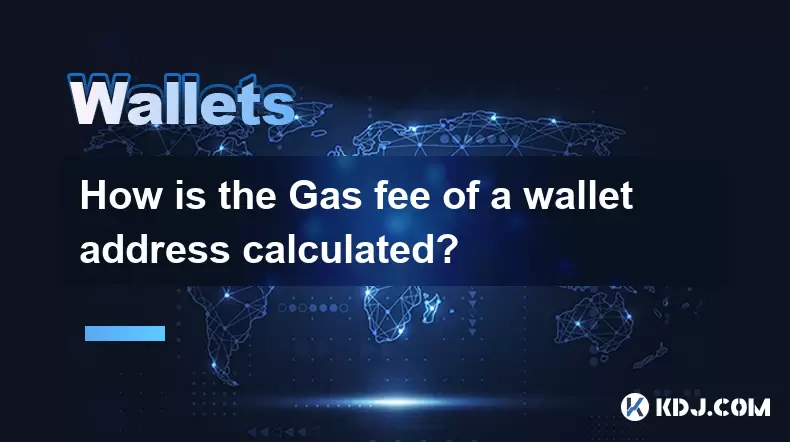
How is the Gas fee of a wallet address calculated?
Jun 14,2025 at 07:57pm
Understanding the Basics of Gas Fees in Blockchain TransactionsIn the cryptocurrency ecosystem, particularly within Ethereum-based networks, a Gas fee is an essential component of executing transactions or smart contract operations. The Gas fee serves as compensation for miners or validators who process and confirm transactions on the blockchain. It is ...

How do I transfer XRP to my Coinbase wallet?
Jun 16,2025 at 04:57pm
Understanding the Basics of XRP and Coinbase CompatibilityBefore initiating any transfer, it’s essential to confirm whether Coinbase supports XRP. As of recent updates, Coinbase has resumed offering XRP trading services on its platform after a period of uncertainty due to legal issues involving Ripple Labs. However, availability may vary depending on yo...

How do I deposit BNB into my Trust Wallet?
Jun 15,2025 at 03:56pm
Understanding BNB and Trust Wallet CompatibilityBefore initiating a deposit, it’s crucial to understand what BNB is and how it interacts with Trust Wallet. BNB (Binance Coin) is a utility token created by the Binance exchange. It can be used for paying transaction fees, participating in token sales, and more. Trust Wallet, on the other hand, is a mobile...

How do I send USDT to my Ledger Nano X?
Jun 15,2025 at 06:28am
What is USDT and Why Use Ledger Nano X?USDT, also known as Tether, is one of the most widely used stablecoins in the cryptocurrency ecosystem. It operates on various blockchain networks such as Ethereum (ERC-20), Tron (TRC-20), and others, offering users a digital asset pegged 1:1 to the US dollar. When it comes to storing USDT securely, hardware wallet...

How do I deposit Bitcoin into my Trezor hardware wallet?
Jun 14,2025 at 12:29pm
What is a Trezor Hardware Wallet?A Trezor hardware wallet is a secure device designed to store cryptocurrencies offline, protecting them from online threats. Unlike software wallets, which are vulnerable to hacking and malware, Trezor stores private keys on the physical device itself. This ensures that transactions can only be approved by physically int...

How to set the transaction limit of a wallet address?
Jun 16,2025 at 04:08am
Understanding the Concept of Transaction Limits in Cryptocurrency WalletsIn the cryptocurrency ecosystem, transaction limits refer to predefined restrictions placed on the amount of digital assets that can be sent or received by a wallet address within a specified timeframe. These limits are typically enforced by platforms such as exchanges, custodial w...

How is the Gas fee of a wallet address calculated?
Jun 14,2025 at 07:57pm
Understanding the Basics of Gas Fees in Blockchain TransactionsIn the cryptocurrency ecosystem, particularly within Ethereum-based networks, a Gas fee is an essential component of executing transactions or smart contract operations. The Gas fee serves as compensation for miners or validators who process and confirm transactions on the blockchain. It is ...
See all articles
























